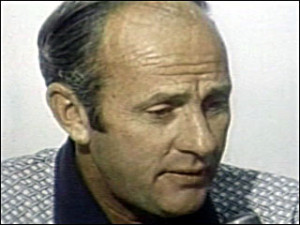I shared a story with a young friend of mine this week, and I want to share it here. It involves a now-deceased professional sports executive who embodied the kind of humility we see little of in today’s world of pro sports.
On June 5, 1977, the Portland Trail Blazers won the National Basketball Association championship. They beat the Philly 76ers in six games, winning the final game in Portland.
Oh, and Portland is my hometown. I didn’t attend the game, but watched it on TV. You’ll recall that the Sixers had some pretty good athletes: Julius Erving, Darryl Dawkins and George McGinnis come to mind.
I was working at the time as a sports writer for a small suburban daily paper in Oregon City, about 15 miles south of Portland. I was not yet 28 years of age.
The Blazers scheduled a victory parade through downtown Portland a few days after the big win. My editor assigned me to cover it, to shoot pictures and write a story about the event for the next evening’s paper.
Off to Portland I went.
The parade commenced. I followed the open cars along several streets, shot some pictures of the players waving to their fans and then ended up in Terry Schrunk Plaza, a park in front of a 40-story bank building.
The crowd was enormous. I looked across the way and saw a smaller building attached by an overhead walkway to the skyscraper. I went to that building, which overlooked the plaza and the crowd of about 60,000 or so fans; all told, the parade drew perhaps a half-million folks into downtown Portland.
The players were introduced. Bill Walton! Maurice Lucas! Terry Gross! Lionel Hollins! All of them took their bows. Head coach Jack Ramsay said a few words.
Then I looked across the platform where I was standing and noticed another familiar figure. He was all alone.
It was Stu Inman. And who is this man? Oh, he was just the guy who built the team that was being honored below. Inman was the general manager of the Blazers. He negotiated the deals that signed Walton, Lucas and the others who had just brought much glory to the city.
Why wasn’t he down there, soaking up the love that was being thrown at the team? I walked over to him, introduced myself — and asked him directly, “Stu, why aren’t you down there?”
“Oh, that’s for someone else,” he said. He wanted the players and the coaches to collect all the adulation. It wasn’t his thing, he said.
Fair enough. I thanked him, congratulated him and said so long.
Humble. That’s the word that comes to mind today as I look back on that man and that time.
I’m trying to imagine: Do you think Dallas Cowboys owner/general manager Jerry Jones would stay away?
